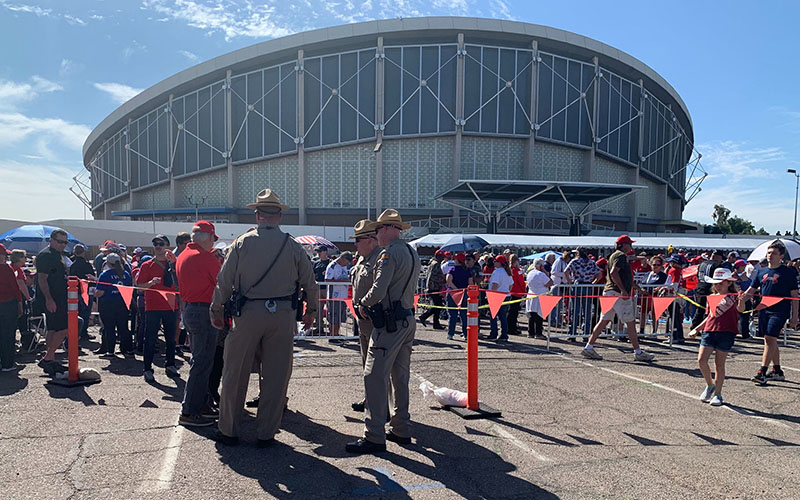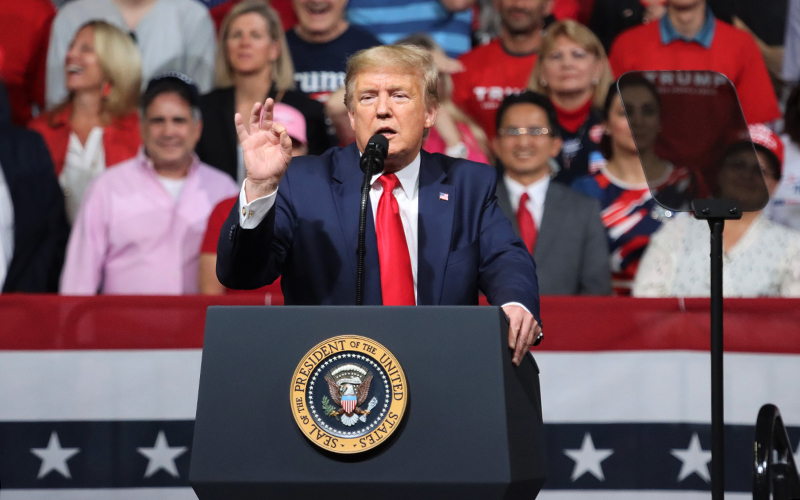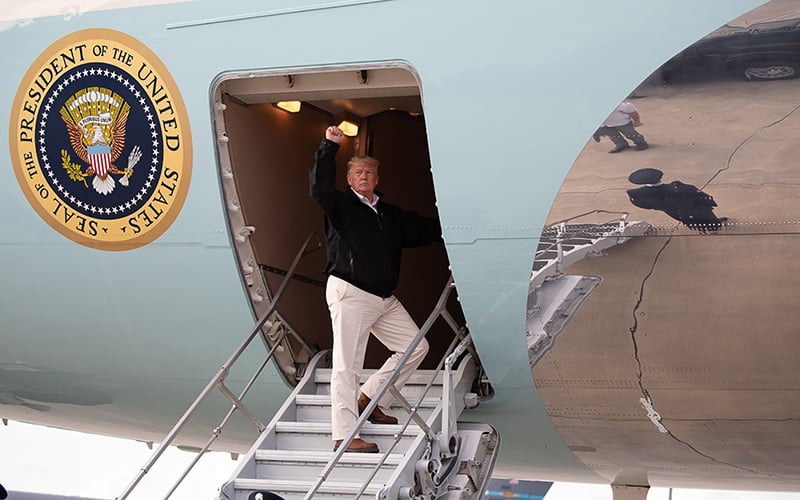WASHINGTON – President Donald Trump brought thousands out to his rally Wednesday at Arizona Veterans Memorial Coliseum – what he likely did not bring was $145,000 to reimburse local governments for costs from previous rallies in Arizona.
That’s how much Tucson and Mesa billed the Trump campaign for police protection and other services at rallies in 2016 and 2018, respectively, according to news reports. Mesa communications specialist Kevin Christopher said this week that the city believes the campaign should “do right by the taxpayers of Mesa” and pay the invoice.
But the campaign, which is not legally obligated to pay such post-event bills from local governments, has not done so. And it’s not just the Trump campaign.
Donald Sherman, deputy director for Citizens for Responsibility and Ethics in Washington, said the practice of avoiding such bills happens with multiple campaigns. Candidates range ideologically from GOP former House Speaker Newt Gingrich to Sen. Bernie Sanders, I-Vt., who’s currently leading the Democratic presidential field for 2020.
But Sherman said Trump has racked up more unpaid expenses in this area than other campaigns: A Center for Public Integrity investigation last summer said Trump’s campaign had bills for $840,000 in rally services from 10 cities across the country, including the $145,000 for Mesa and Tucson.
“It is not a matter of money. Trump raises millions of dollars at his rallies and charges $50,000 per seat at his fundraisers,” Sherman said. “I wish I knew.”
The Trump campaign did not respond to an emailed request for comment.
News reports indicate that the campaign did pay the $27,000 rent for Wednesday’s use of Veterans Memorial in advance. But other costs are harder to predict.
When then-candidate Trump visited the Tucson Convention Center in 2016, the city deployed 180 uniformed police officers for public safety, according to records obtained by CPI. Trump’s 2018 visit to Phoenix-Mesa Gateway Airport for a campaign rally for Martha McSally’s Senate bid, reportedly cost the city $64,000 for parking barricades, security and towing costs.
A Tucson spokesman confirmed Wednesday evening that the city’s 2016 bill to the Trump campaign is still unpaid. Mesa officials said this week that they hope to eventually see the money – even as they concede that is unlikely.
“We believe the Trump 2020 campaign should reimburse our city for those taxpayer dollars, and we have invoiced the campaign accordingly,” said a statement from Mesa. “However, to be clear, the Trump campaign is not legally obligated to cover the costs for the campaign rally that took place at Gateway Airport.”
Sherman said that under Federal Election Commission rules, campaigns do not have to reimburse local governments for costs that were not contracted for in advance. They do have to carry those debts on their quarterly campaign reports until the issue is resolved, he said, noting that Sanders has done so but the Trump campaign has not.
The last time Trump was in Phoenix, in 2017, police fired tear gas into crowds of protesters who came out to oppose the president. News reports at the time said the city may have spent up to $450,000 responding to that event, a number Phoenix communications director Julie Watters described this week as accurate.
Watters would not predict what costs, if any, might come with this latest rally, but said the city “will provide services to this special event including police and fire support, sanitation and street management obligations, among other roles.” Arizona Department of Public Safety troopers also staffed the event.
“Any time there is a large-scale event in Phoenix, the city takes an all-hands-on-deck approach and our priority is the continuity of service to our customers and the safety and security of all residents and visitors within the community,” she said.



